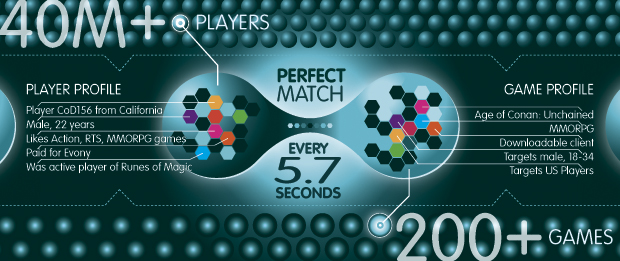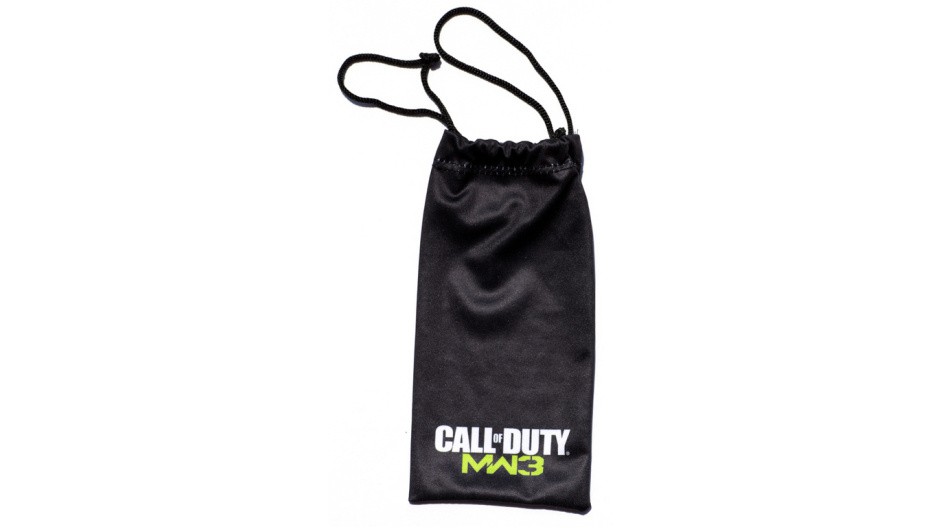Information is a key part of of any online business, and it’s no less so than in the gaming field. In order to help meet these demands, MMO Traffic and its parent MMO Life Group are rebranding as iQU. The data intelligence company will push its marketing technology platform (also named iQU) to help gather gamer behavior across the Internet, social media, mobile devices and more to match game advertisers and publishers with the right gamers at the right time. We talked with iQU CEO and founder Reinout te Brak about the announcement and other trends in the online and mobile gaming space.
[a]list: Give me an overview of the company and the announcement.
Reinout te Brak: My wife said I was going to be a father, so I had nine months to figure out what I was going to do. Talking to people in the industry, I discovered that MMOs were big and getting bigger. The name [for the site MMO Life] came from anticipating that people would have this life in the MMOs that would be an enhancement to their everyday lives. We looked to review games in multiple languages.
We wanted to expand out. We weren’t getting proper feedback on how big games are, so we decided that we would have a platform that integrates greater feedback during GDC 2010. Social and mobile were coming up really fast, so we started ramping up in December 2010 and we got more good data in January and February [of this year]. Sometimes we can see trends where players will be disappointed and they will move on.
We find that gamers are the most interesting thing to study when it comes to various titles. When you talk to developers they really want to know what players are thinking – by and large they are unsure. We see that 5 to 10 percent of mobile users are doing 80 percent of the spending. As users age, their interests might switch to other games. We want to give gamers options of games they might want, and perhaps that are made by old developers they liked in the past.
The more mature our company becomes, the better targeted our offerings will be. We’re starting to see behavior patterns in the sort of gaming that people do. We have the history of various gamers with their social history and we can show the developer how they are engaged and we can tell the players, “There’s this game coming out that you might be interested in.”
We’re looking to get more conversions with developers to [help them] understand what we do. Getting gamers in the game and spending money, that’s the service for the developer. If we can see which games are popular to whom, we can publish those games that will do well in the appropriate sector and help them flourish.

Gamers are connected across multiple devices.
[a]list: Talk to me about the importance for tracking gamers via the social and mobile networks they use?
Reinout te Brak: Tracking is done with many variables. In the second quarter we did a huge migration if our publishers that had dynamic values in their games. We needed to figure out the player destinations and we needed to find out where the players come from. We want to make sure the players will see games he is interested in instead of what he’s seen before; like I said this takes many variables. Finding out what does well in what territories, it helps companies broaden their reach and provide our audience with a variety of games. We want to make sure we build as many partnerships as we can to offer as many games to as many gamers in as many countries as possible. So a competitor might be looking into Facebook and Google+ – we’re hoping to engage users directly with the developers. We want to give [developers] data upon which they can develop a portfolio in a smarter way.
[a]list: How about in the mobile space?
Reinout te Brak: We have talks with management operators of mobile devices and publishers; many are interested in our OEM and where users are searching for games. This can help developers be more focused on building their game careers.
I think the world is becoming transparent. If I’m looking for an MMO on the App Store, it’s easy to see what people think. I think there’s a lot of great talent leaving big companies and we can say to them, “In a certain country your game can do well, don’t spend money in Germany yet.”
We know there’s a gamers audience out there. The developer doesn’t have to spend the money [searching for] it, and there’s also the dev scale. It’s very interesting work; I would love to publish games if I know how well they’ll do, and I think we’ll know based on our intelligence. You can have people doing SEO tricks; sites often need to advertise to get early on presence. The biggest money spent on Google was insurance and travel… now I know how to buy into Google, what words to buy and so on, but we’d rather build on our own enterprise.
[a]list: Are there really so many differences between different European nations, besides language?
Reinout te Brak: Jawohl, yes, si! We were looking at a site that had English text that was focused on Polish gamers. I think it’s a key for success to localize a game and have relevant local payments for the games. I think it’s a key for success to localize a game and have relevant localize payments for the games. The most successful publishers don’t just translate into every language. Localization, culture and payment methods, and community management are also important. There are so many differences cross countries and also the way you target gamers – Google is nearly universal, but in Holland there is a social network that everyone is on, so they are important too. Local destinations are very important.

How iQU works in a picture.
[a]list: It’s interesting that more localized versions of free-to-play online games are coming from the Western sphere, even though some Asian companies were pushing very hard with their own products a few years ago.
Reinout te Brak: A lot of Asian companies went to the U.S. At first, some of them are doing well in the U.S. so they went to the U.K. and then went to Europe. A lot of those same Asian companies closed their offices in U.S. a couple years later and they’re not doing that well in Europe; they’re trying to do too much over here. It’s all about knowing your particular markets, and I’m not sure many of them knew enough about the U.S. or Europe.
[a]list: Do you see mobile gaming as the most important growing sector in the gaming industry?
Reinout te Brak: Absolutely! I hope to announce some day that we’ll work with every game for mobile. For mobile, it’s important to listen to gamers; I’m so much more social on my mobile devices than I am on my computer. So social and gaming… that’s a lethal combination in getting gamers involved. Fifty cents, a Euro, whatever… it seems like a mobile title takes off better than a browser based game, which is important to know. We have 250- 300 games that we can offer for mobile.
For mobile games there are two keys: visibility is one, finding is two. It can be difficult to find some offerings because front pages where they might be promoted change frequently. Once we know you look for certain games, we know not to offer games you won’t be interested in. We can see where the gamers are to see where you’re playing a game, so we won’t annoy you with Perfect World on an iPad. I would also find out what destinations you were visiting on your iPhone or PC to make it more specific to you.
[a]list: Talk to me about the partnership with MMO games.
Reinout te Brak: If you have a great network, we’d love to work with you. What we did over a period of six weeks was offer a game to multiple parties, and in less than six weeks, try and get them paired up. They need to implement certain scripts and that comes down to the importance of the data. I point to our team that worked on Wizard 101, because in the U.S. you have multiple factors and where you have to optimize the sort of traffic you have and we’re getting more publishers because we need to facilitate more growth. Once you go too fast, the quality might go down too, so we wind-up growth month to month rather than in a burst. Within two weeks, you can see if people need help.
[a]list: Reinout, thanks.
_ _
Interested in the iQU service? Looking forward to the connected gaming future? Join the discussion on Facebook.
 Gamers are connected across multiple devices.
Gamers are connected across multiple devices.
 How iQU works in a picture.
How iQU works in a picture.


